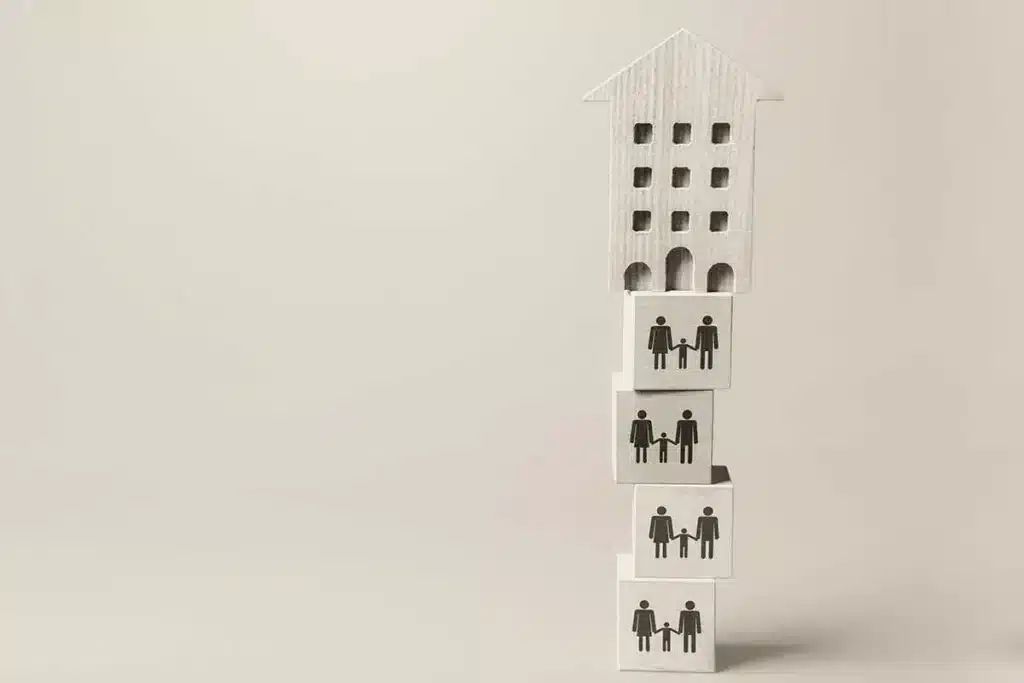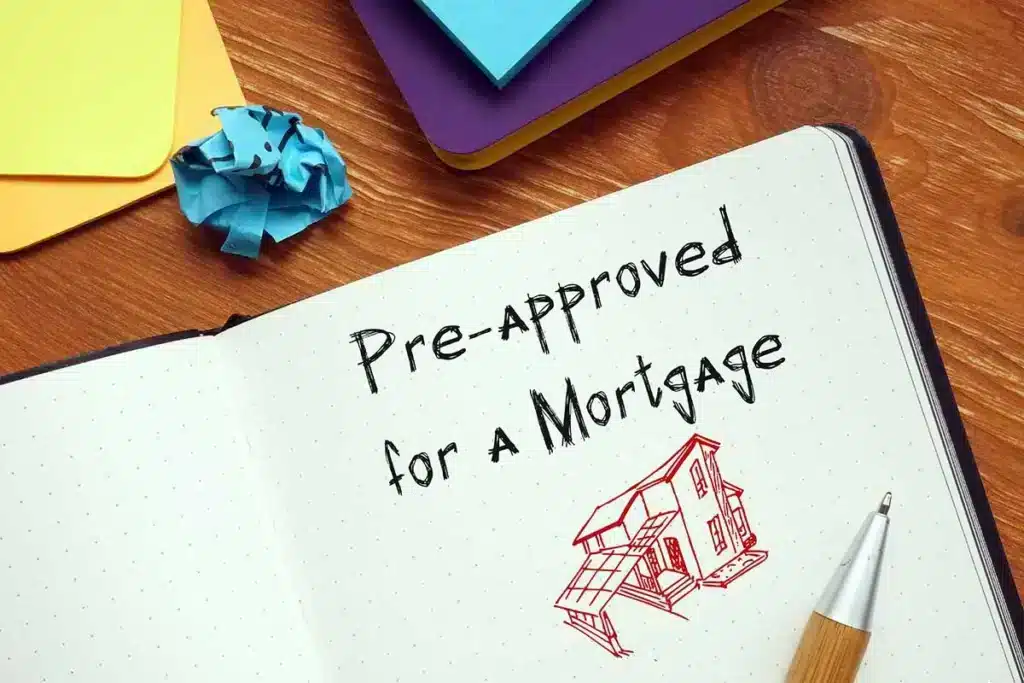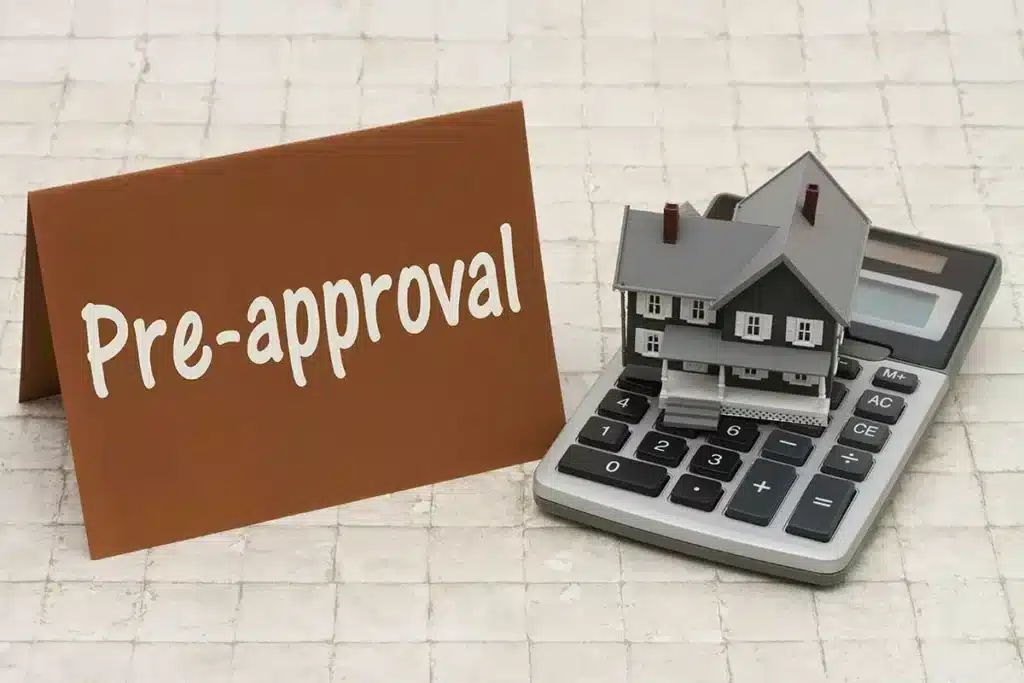Are you in the market for a new home? If so, the process of how to get a mortgage may seem intimidating. But don’t fret – Mortgage Rater is here to help! In this blog post, we’ll take you step-by-step through each step and explain what each step entails and how best to prepare. By following our guide, making this part of getting a mortgage as smooth and stress-free as possible!
How To Get a Mortgage
Buying a home is an exciting milestone and one of the biggest investments you can make. However, getting a mortgage can seem intimidating for first-time home buyers. That’s why we’ve put together this guide; to take some of the guesswork out of getting approved. Here are some key tips to keep in mind as you learn how to obtain financing.
Pre-Approval
The pre-approval process helps you decide how much house you can afford and which loan best meets your needs. To get approved, you will need to submit documents such as credit report, bank statements, employment history and other financial info so lenders can assess your creditworthiness and ability to make timely payments. Preapproval plays an integral role in getting a mortgage since it helps focus your search for a new home and ensures you don’t spend more than what is affordable.

Shop Around
Don’t be afraid to shop around for the best rates and terms from multiple lenders. Before taking any immediate steps towards getting a mortgage, it’s essential that you compare not just interest rates but any fees that may come with certain types of mortgages. Doing this ensures you know all costs associated with taking out a loan with each lender. By shopping around, you could potentially save money in the long run by finding competitive rates in your area or online.
Be Prepared For Closing Costs
One last part of getting a mortgage: closing costs. Closing costs refer to fees associated with getting a loan that must be paid at closing (when it’s finalized). These may include appraisal fees, title search fees, attorney fees, points (prepaid interest), origination fees and survey fees – and they can add up quickly depending on where you live and which loan type is approved for. When deciding how much house to afford it’s important to factor these costs into your budget as they will need to be covered at closing time.
1. Get Your Credit Score
One of the first steps when applying for a mortgage is checking your credit score. Your credit score is an indicator of your creditworthiness, so having good numbers on file is necessary if you want to be approved for an advantageous interest rate on your mortgage. There are various methods of obtaining this information; one convenient option is using Credit Karma’s service.
2. Shop Around for Mortgage Lenders
Once you know your credit score, the next step in getting a mortgage is to start shopping around for lenders. To find the best deal possible, it’s essential to compare rates and terms from multiple lenders at once using an online marketplace like Mortgage Rater.
3. Get Pre-Approved for a Mortgage
Once you’ve identified several lenders that you are interested in working with, the next step of how to get a mortgage is getting pre-approved. Doing this means the lender has reviewed your financial data and determined how much they’re willing to lend you. This can give you an estimate of how much house you can afford and help narrow down your search for properties.

4. Find the Right Mortgage Program
When looking for a mortgage, there are various programs available that could work for you. With good credit, you may qualify for a conventional loan with low-interest rate. Even if your credit is less-than perfect, there are still plenty of options such as FHA or VA loans.
5. Compare Mortgage Rates
Once you’ve identified the ideal mortgage program, the next step should be to compare mortgage rates from multiple lenders. Even if two lenders provide similar loan products, their interest rates and associated fees may differ. That is why it’s essential to compare rates before making your final decision on which lender to work with.
6. Calculate Your Mortgage Payment
Once you’ve compared mortgage rates from multiple lenders, it’s time to calculate your monthly payment. This will give you an idea of how much house is affordable and help plan for a new home purchase. To do this, use an online mortgage calculator like Mortgage Rater.
7. Get Mortgage Insurance
When purchasing a home with less than 20% down, most lenders require private mortgage insurance (PMI). PMI is an insurance policy that safeguards the lender in case of default; it typically costs between 0.5% and 1% of your loan amount annually. You’ll need to factor this cost into when calculating how much house you can afford.
8. Find the Best Mortgage Rate
The interest rate on your mortgage has a major influence over both your monthly payment and overall amount of interest paid over its life. That’s why it’s critical to shop around and compare rates from multiple lenders before selecting one.
The First Steps: How to Get Pre Approved for a Mortgage
Buying a home is one of the biggest investments you’ll ever make, so it’s essential to understand how to obtain a mortgage before starting the process. One way to do this is by getting pre-approved for a loan; this helps potential buyers determine their budget and which homes fit within that range. Let’s take a closer look at all of the steps necessary for getting pre-approved so that you’re better informed when learning how to obtain financing for a mortgage.

Gather Your Financial Information
To get pre-approved, gather your financial information and supporting documents such as bank statements, tax returns, and pay stubs. Doing this gives lenders an accurate picture of your finances so they can decide how much to lend you. Additionally, it’s crucial to check your credit score by getting copies of all three major credit reports (Equifax, TransUnion, Experian). Your credit score plays a significant role in determining whether or not you will be approved for a loan and what interest rate you qualify for if approved.
Find a Lender
Once you’ve collected all your financial documents, it’s time to find a lender who can assist with the pre-approval process. Research different banks and credit unions near you or online lenders who specialize in mortgages. Compare rates and fees between each lender so that you can get the best deal possible. Don’t forget to inquire about any terms or conditions associated with the loan before signing on the dotted line.
Get Pre-Approved
Once you’ve identified a lender, it’s time to get pre-approved for the loan amount that best meets your needs and budget. The lender will review all of your documents and run a credit check before making their decision on approval status. If approved, this will give you an idea of how much money can be borrowed and may even give sellers more confidence when considering offers from potential buyers like yourself!
You might want to consider applying for government programs such as FHA loans, which require lower down payments than conventional loans and USDA loans that offer home financing options with zero down payments in certain rural areas across America.
1. What is a mortgage pre-approval?
The initial step in getting a mortgage pre-approval is receiving a letter from your lender indicating how much money you can borrow to purchase a home. This amount is determined based on your income, employment status, credit history and other factors. Having this pre-approval can give you an edge when searching for properties.
2. How to get pre-approved for a mortgage?
You can get pre-approved for a mortgage by submitting an application to your lender. They will require information about your income, employment status, credit history and assets. After reviewing this data they will issue you with a pre-approval letter which details how much money you can borrow to purchase a home.

3. What do I need to get pre-approved for a mortgage?
How to get a mortgage pre-approval? First, submit an application to a lender. They’ll need information about your income, employment history, credit history and assets. After reviewing this data they will issue you with a pre-approval letter which outlines how much money can be borrowed for purchasing a home.
4. How long does it take to get pre-approved for a mortgage?
The amount of time it takes to be pre-approved for a mortgage depends on which lender you work with. Some lenders may be able to provide you with a pre-approval letter within 24 hours, while others may take several days or longer.
5. How long is a mortgage pre-approval good for?
Mortgage pre-approvals are usually valid for 60 or 90 days from the date they are issued, giving you enough time to find a home before your pre-approval expires. However, keep in mind that your interest rate could change if rates rise during this timeframe.
6. Do I need a real estate agent to get pre-approved for a mortgage?
No, you do not require a real estate agent to get pre-approved for a mortgage. However, working with an experienced agent can make the home buying process smoother and more enjoyable. They will assist in finding homes that fit within budget and requirements and negotiate on your behalf when making an offer on a property.
7. Should I get pre-approved for more than one mortgage?
Pre-approval for more than one mortgage is not necessary, but doing so may give you greater negotiating power when looking for a home as sellers will know that you are serious about purchasing their house and have the financing in place. Furthermore, getting multiple Mortgage Raters allows you to compare interest rates and terms from various lenders.
How to Get Preapproved for a Mortgage
If you’re trying to learn how to get a mortgage, one of the first steps should be getting preapproved. A preapproval will give you an idea of which loan type and amount may be available to you. While this process can seem intimidating at first glance, knowing what documents are required and where to begin makes things much simpler. Let’s go over some key points about getting mortgage preapproval so that you can begin your house-hunting adventure!
Gather Documents
Are you uncertain how to obtain mortgage preapproval? The preapproval process begins by gathering all of your basic financial information. This includes tax returns from two years ago, bank statements from recent months, proof of income (pay stubs or W-2s), a list of debts (including credit cards, student loans, car loans), as well as evidence of assets like investments or savings accounts. It’s essential that these documents be collected prior to looking at houses–this way when applying for a loan, everything will be in order.
Meet With Lenders
Once you have collected all necessary documents, it’s time to meet with potential lenders. Before doing so, research them thoroughly and read reviews online–you want to ensure they have a good record with borrowers and their rates are competitive in the current market. Furthermore, read through any paperwork thoroughly before signing anything; make sure there are no hidden fees and that all terms align with what was discussed during your meeting(s).
Submit Your Application
Once you’ve selected a lender and discussed terms with them, it’s time to submit your application formally. This involves providing all documentation as well as any requested information (credit score report, etc.). How quickly both parties submit paperwork and how quickly the lender processes applications usually determines how long this step takes; most lenders offer preapprovals within 24 hours if everything is in order.

How to Get Pre-Approved for a Mortgage
Are you ready to take the leap into homeownership? The first step of getting a mortgage is obtaining one. We understand this can seem intimidating if this is your first time looking for a home loan, but don’t fret–we’re here to make the process as painless as possible. Here’s everything you need to know about obtaining a mortgage loan.
Research Different Lenders and Types of Mortgages
Are you going to go through a lender or bank? Will you apply for an adjustable-rate mortgage or a fixed-rate mortgage? There are a lot of decisions to make when it comes to choosing the right lender and type of loan. That’s why it’s important to do your research before learning how to get a mortgage. Take some time to compare interest rates, fees, and other features from different lenders and types of loans so that you can get the best deal available.
Know Your Credit Score
Your credit score is an integral component of getting approved for a mortgage loan, so be sure to know what it is before applying. Most lenders require applicants to have good credit in order to be qualified, so make sure to review your report and correct any errors prior to submitting your application.
Organize Your Documents
What’s the final step to getting a mortgage loan? You will likely need several documents when applying for one, such as tax returns, pay stubs, bank statements and proof of income. It may be beneficial to compile all this information in one place before submitting your application; that way everything will be easily accessible when needed.
Researching ahead of time can save you both time and money in the long run by helping you locate the most advantageous mortgage rates. With this guide in hand and some preparation on your part, house-hunters should feel empowered to take their first steps toward homeownership! So go ahead – start househunting now! Best wishes!



